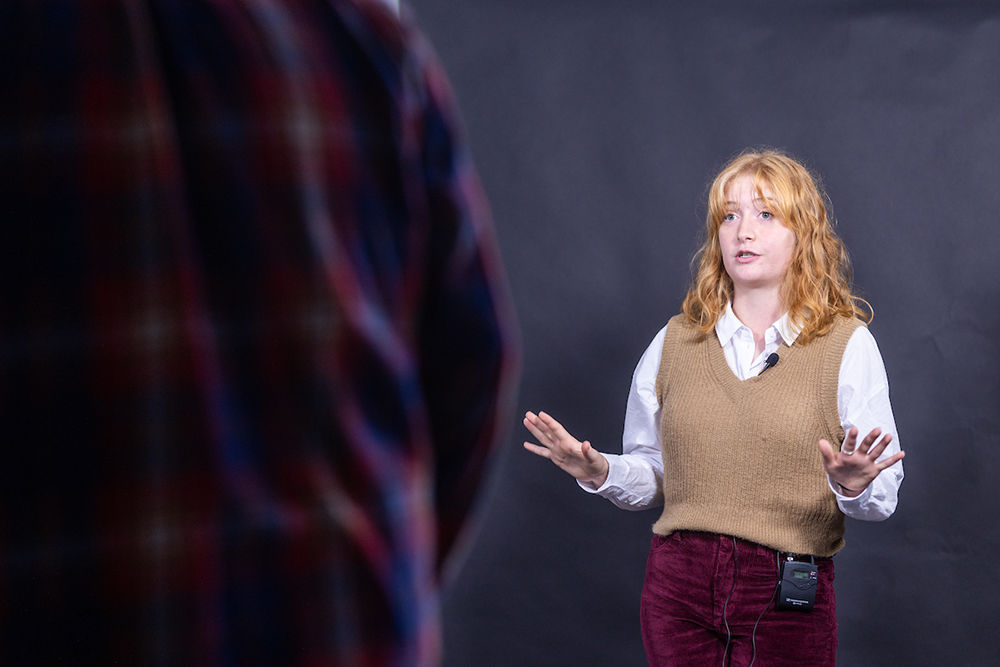‘Shark Tank’ meets Shakespeare: An ongoing business study casts theatre majors in dual roles
Delivering a successful sales pitch is both an art and a science – a winning salesperson has to know their business backward and forward, but they also have to be enough of a performer to present their ideas in a fashion that’s persuasive to buyers and investors.
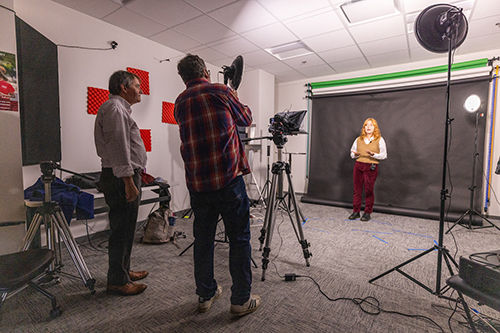
That delicate balance is the subject of a new Radford University research project. Spearheaded by Associate Professor of Management Richard Gruss, the study draws from such diverse resources as the reality television show “Shark Tank,” plus several theatre majors with the College of Visual and Performing Arts.
“I was really interested in the idea of the entrepreneurial pitch, where there are certain factors that determine your success,” said Gruss, of the Davis College of Business and Economics, who’s conducting the study in collaboration with Assistant Professor of Management Zach Collier.
They looked first to “Shark Tank,” the TV competition in which budding businesspeople present entrepreneurial concepts to venture capitalists, who then decide if they want to invest in the projects.
The popular show is now in its 15th season, and Gruss obtained transcripts from about 600 episodes. He sifted through the winning pitches and found such common denominators as the use of shorter sentences, higher noun-to-verb ratios, metaphorical language and gender-based trends.
Another key factor, however, stood out most distinctly. Many of the successful pitches, Gruss realized, “really did tell a story, with the structure that you learn in ninth-grade English, in which you have a protagonist, and you have a conflict, then you have the resolution and the denouement.”
Those narrative-based pitches, he found, were the ones that most often got funded: “It was like a 30% probability increase, which is, I mean, that size effect is unheard of in our research.”
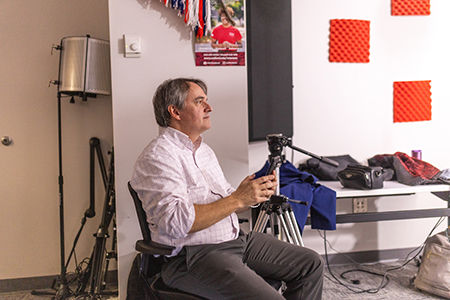
But he also had to address the fact that his “Shark Tank” statistics represented observational data or information drawn from an experiment he didn’t conduct.
“With observational data, you can’t have random samples, and you can’t have treatment and control. You’re just looking at existing data, which is … problematic,” he said.
So Gruss harvested his own numbers, locally, by holding a business contest of his own.
He scripted sales pitches for four fictional products and planned to shoot two versions of each – one built around a story, the other without a narrative – then put those to a survey to gauge which was more appealing to viewers and why.
Tom Snediker, an instructional designer with Radford’s Center for Teaching and Innovative Learning, helped coordinate a video shoot, and Gruss began casting the on-camera talent.
Because a sales pitch contains so many variables – speech patterns, tone, volume, gestures – he knew the two versions still had to be as similar as possible.
“Who knows how to keep control in presenting?” Gruss said. “Actors.”
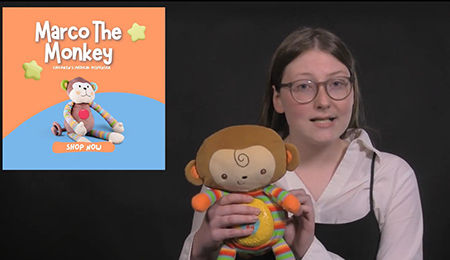
That’s how a business college study wound up involving theatre majors, including Megan Reed, a senior from Fairfax, Virginia, whose pitch involved a fictional appetite-suppressing lip gloss called “Kiss Away the Pounds.”
“It was an opportunity to showcase what I can do, but also, it had another element,” she said of the project. “I’m helping other people out so they can do research, and I thought that was pretty cool.”
Reed became interested in acting in her junior year of high school when she got a part in “Fiddler on the Roof.”
At Radford, she found that theatre students must work in a variety of fields – acting, but also set building, lighting, sound and costumes – before deciding on their chosen subject.
“You get a better understanding of your craft, and you become a more well-rounded artist,” Reed said.
Another participant in the study was Zoe Keith, a Pulaski senior whom Gruss saw onstage last year as Ursula in Radford’s production of Shakespeare’s “Much Ado About Nothing.”
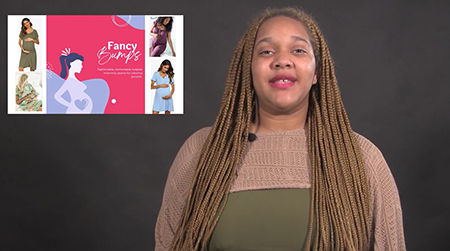
Keith has been into acting since she took part in a county drama program as a pre-teen: “I started doing shows in middle school, and I just never stopped.”
Her transition from The Bard and “the boards” to being on camera was fairly smooth. Her shoot centered around a toy designed to help children take medicine, and she said they used a prompter that followed the script, but since she knew her lines, that was mostly for pacing.
“It was basically a long monologue, and you had to do the same gestures each time to help keep track of it,” Keith explained. “I definitely got to play with my ‘customer service’ voice.”
A pool of viewers later watched various pitches and then took a survey that rated both the product and the on-camera sales reps. While his study remains ongoing, Gruss said the initial results gave them some general conclusions.
“We have to be cautious about making strong claims until we have more data,” he said, but added, “So far, what we found is that the inclusion of a story makes the product more attractive but doesn’t have a significant effect on how the entrepreneur is perceived.”
That challenged one of Gruss’ initial assumptions – that the inclusion of a story demonstrates certain personality attributes of the person giving the speech – but it also confirmed that story pitches improve the impression of the product.
“These are interesting findings,” Gruss said. “But we’ll be more certain after we collect the full data set.”
